Animals
-
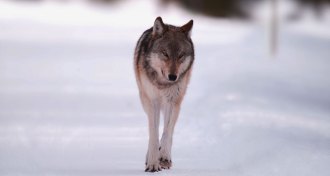 Animals
Animals‘Epic Yellowstone’ captures the thriving ecosystem of the world-famous park
A new documentary series about Yellowstone displays the dynamic, dramatic and exciting ecosystem that thrives within the park’s gates.
By Jeremy Rehm -
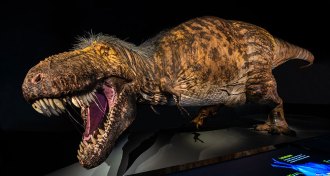 Paleontology
PaleontologyA new T. rex exhibit takes a deep dive into the iconic dinosaur
“T. rex: The Ultimate Predator,” a new exhibit in New York City, draws on the latest science to provide a fresh look at Tyrannosaurus rex and its relatives.
-
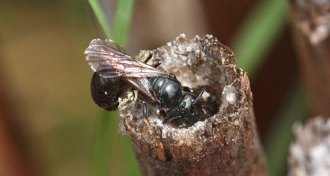 Animals
AnimalsThe first male bees spotted babysitting are mostly stepdads
Some male bees guard young that are likely not their own while mom looks for pollen, a study finds.
By Susan Milius -
 Animals
Animals‘Skeleton Keys’ unlocks the history and mysteries of bones
From fish to dinosaurs to King Richard III, ‘Skeleton Keys’ surveys the scientific and cultural history of bones.
By Sid Perkins -
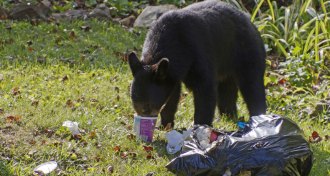 Animals
AnimalsBears that eat ‘junk food’ may hibernate less and age faster
Wild black bears snacking on leftovers of sugary, highly processed foods in Colorado show possible signs of faster cellular wear.
By Susan Milius -
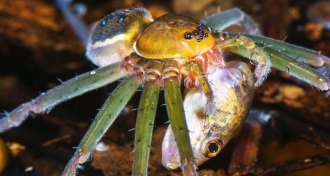 Animals
AnimalsWhat spiders eating weird stuff tell us about complex Amazon food webs
By documenting rare events of invertebrates eating small vertebrates, scientists are shedding new light on the Amazon rainforest’s intricate ecosystem.
By Jeremy Rehm -
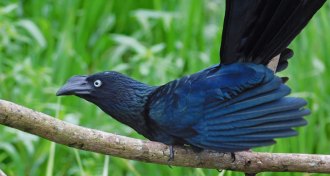 Animals
AnimalsThis parasitic cuckoo bird shows cheaters don’t always get ahead
Birds called greater anis that can slip extra eggs into other nests create a natural test of the benefits of honest parenting.
By Susan Milius -
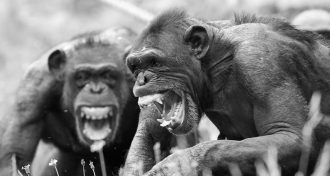 Animals
Animals‘Mama’s Last Hug’ showcases the emotional lives of animals
In ‘Mama’s Last Hug,’ Frans de Waal argues that emotions occur throughout the animal world.
By Erin Wayman -
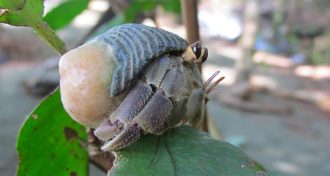 Animals
AnimalsHermit crabs are drawn to the smell of their own dead
A new study finds that the smell of hermit crab flesh attracts other hermit crabs of the same species desperately looking for a larger shell.
By Yao-Hua Law -
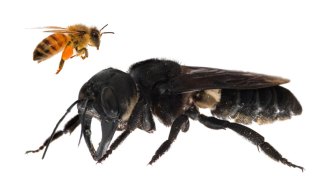 Animals
AnimalsThe world’s largest bee has been rediscovered after 38 years
Researchers rediscovered the world’s largest bee living in the forests of an island of Indonesia.
By Jeremy Rehm -
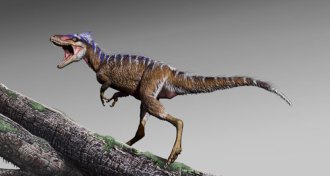 Paleontology
PaleontologyA deer-sized T. rex ancestor shows how fast tyrannosaurs became giants
A newly found dinosaur called Moros intrepidus fills a hole in the evolutionary history of tyrannosaurs, helping narrow when the group sized up.
By Jeremy Rehm -
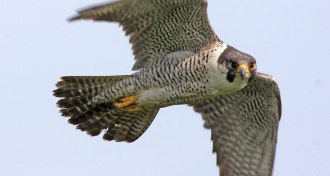 Animals
Animals50 years ago, DDT pushed peregrine falcons to the edge of extinction
In 1969, peregrine falcons were at risk of extinction. But a ban on the pesticide DDT and new captive breeding programs allowed the raptors to recover.